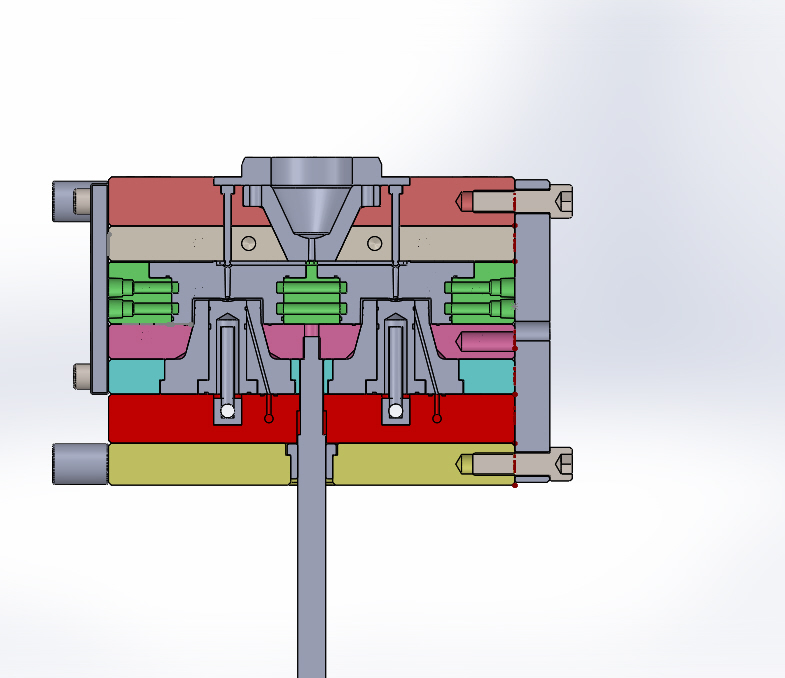- Home
- Lean Principles
- Machine Selection
- Mold Design
- Mold Interlocking
- Mold Making
- Plastic Material Technology
- Molding Process
- Plastic News
- What's New
- Privacy Policy
- Disclaimer
- Site Map
- Poll
- Polishing
- 3D Rapid Prototyping
- Molding Companies
- Contact Us
- Proven Thinwall Packaging Mold Designs For Sale
- MOLD WEIGHT CALCULATOR
- HOT RUNNER VERSUS COLD RUNNER
Plastic Injection Molding Companies
There are many different types of plastic injection molding companies worldwide representing different industries. The main industry sectors are thin wall packaging, medical device, communications/electronic, automotive and general purpose. Growing industries include bi-material and injection compression molding.
Thin Wall Molding
Thin wall packaging is an industry that continues to grow not only in the developed world but also in developing countries. Packaging is the means by which food is transported from supplier to consumer. In thin wall molding, product quality is difficult to control without huge initial and ongoing capital investments in quality equipment and staff.
Medical Device
Medical plastic injection molding companies are required to conform to an array of quality standards. This is important in order to keep medical patients safe from infection or serious injury when being treated in a hospital or doctors surgery. The medical device plastics industry seems to attract more litigation than other plastic industries as it is dealing with people’s health so when plastic parts fail, it can have serious consequences.
Communications/Electronic
This industry includes such products as mobile phones, computers and cameras. Such products contain hundreds of other components so only trust reputable plastic injection molding companies.
Engineering Components
There is a vast array of plastic engineering components. Such components are subject to some form of mechanical load as well as other extreme criteria such as wide temperature ranges. Examples include machine gears, shafts, oil casings, petrol tanks in cars and linkages. Many different types of resins have been developed in recent years to accommodate the different technical demands of the industry.
Plastic Injection Molding Companies for Automotive
The demand for cars and trucks is also increasing worldwide as developing countries continue to improve their standard of living. The demand for more fuel-efficient cars and trucks drives the need to manufacture lighter parts by replacing metals parts with plastic as well as further reducing weight of existing plastic components. One of the major technological advancements in the plastics automotive industry is the MuCell Microcellular Foam injection molding technology which introduces an expanding gas inside a plastic part during manufacture which reduces the amount of plastic required to make each part. This technology has found applications in the packaging and medical industries.
Bi-material Moulding
This involves injecting 2 different types of materials or 2 different colours of plastic in order to produce an attractive and functional product. This type of injection molding not only requires specialized moulding machines but also specialized mould designs which support the already cured first shot in the mould during the injection of the second shot.
Injection Compression Moulding
Injection compression molding is a 2-stage process. First, the molten resin is injected into a partially closed mould under low pressure followed by a mechanical process which compresses the resin inside the mould as it cools. Either the machine or a punch inside the mould can do the mechanical compression. Some of the advantages of injection compression moulding are material savings resulting from lower part weights (as in high volume thin wall food containers) as well as better optical quality in lenses due to lower internal stresses.
General Purpose Moulding
This part of the plastic moulding industry includes companies with non-specialized injection moulding equipment. These plastic injection molding companies have cheaper equipment than specialized moulding industries but this advantage is offset by greater worldwide competition. Examples of products include storage containers, outdoor furniture and garden pots.
Additional Comments
If you are searching for a plastic injection moulding company to produce your product be sure to approach the right one so you can be sure you get the best balance of price, quality and service.
If you want to advertise your plastic injection molding business then contact us now on the form below to find out about rates.
Return from Plastic Injection Molding Companies to Home Page





